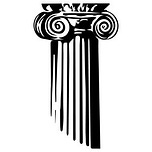Colorado’s bishops issue an open letter asking their governor to veto an a bill that would put taxpayer money toward elective abortions. JD asks if it is time for bishops to lose the script and start directly instructing and guiding Catholics.
This episode is sponsored by St. Bernard’s School of Theology and Ministry.
Join St. Bernard’s this summer in auditing one course— entirely free— thanks to the Knights of Columbus Finger Lakes Chapter.
Learn more by visiting stbernards.edu
Photo of Airedale Terrier. Credit Zuni1520 via Wikimedia (GNU)


















JD, I have to tell you that one of the Deans of St. Bernard’s definitely pronounces it the British way.
Also, their summer audit is awesome. The material and instruction are always very high quality. 10/10 recommend.
The Humane Society charge is for microchipping so that if your pet is lost it will be returned to you. And for neutering your pet so there aren't lots of unwanted pets roaming the streets or flooding animal shelters. It's a reasonable charge.
My favorite dogs are German Shepherd mixes. The best dog I ever had was a German Shepherd Pit Bill mix. May you soon have an excellent dog.
You don't have to look back to first Christians to see how catholics living without political power. You just have to look North.
The current governing party of Canada has a Catholic leader uninterrupted since 1968, and yet every social progress away from catholic teaching have been led by this same party.
The other party, historically more pro life friendly, has also just declared that they'll not legislate abortion (as they've done every election).
Heck, our publicly funded Catholic schools fly the pride flag and not requiring the schools to teach Catholic faith.
Nice to see another Canadian on here. :-)
(Full disclosure: I am American transplant).
Another Canadian reader of the Pillar here. I thought the same thing as I listened to the podcast. Canada is ahead of Colorado in this respect. We are utterly powerless and completely disenfranchised. A true pro-life politician is essentially unelectable up here. I agree with JD Flynn that we are in need of wise sound leadership to speak to the faithful. My only other comment is that I think Canada (etc) is more like post Christian re-paganized Europe following the collapse of the Empire than it is like pre-Christian Europe. I can’t remember who said it (GK Chesterton, I think), but it has been said that a post Christian context is far worse than a pre-Christian one, analogous to adultery and divorce vs mere fornication and immorality.
I had a similar reaction to the bishops response to the Obamacare birth control mandate. Yes, they should have fought the mandate legally. But I wish they had taken the opportunity to teach why the Church teaches what She teaches on artificial contraception. Many Catholics do not believe in this teaching and they had a golden opportunity to talk about instead spent all their time politicking.
Agreed. I wasn't Catholic then and I only vaguely knew something about Catholics not believing in birth control, (Pope Benedict had said something about it in the context of Africa that had made a lot of people mad recently) but I was open to learning more about why they believed that. But no Catholics I asked seemed to know except saying things like "it's refusing a gift of God" or "it makes it easier to lead a sinful life" and the legal arguments were obviously focused on first amendment concerns, not on the teaching itself. I eventually learned about it via the Christianity Today women's blog, which included Jen Fulwiler's "Something Other Than God" on a best books of the year list, and she mentioned Humanae Vitae and I went off and read it. I literally learned about this ultra Catholic topic thru Billy Graham's legacy 💀
I want a Bishop Bulworth.
That Ed action figure could be the late Phil Hartman in a rare dramatic role.
Interesting convo. I think that Ed's suggestion of a prophetic endorsement of life issues across the board would immediately get bogged down in the same problems as much of Church discourse around politics—namely, controversy over whether it too closely resembled an endorsement of conservative political positions. Think of Pope Francis's off the cuff, apparently unrehearsed attempt at a noncommittal, "both sides are bad"–type comment last summer: "Both are against life, be it the one who kicks out migrants, or be it the one who kills babies." Yeah, both are bad, but you look at that quote for a few seconds and it starts to read like an endorsement of Trump. People like Massimo Faggioli were upset about it!
(Admittedly, a strong statement on IVF would scramble the partisan valence at least a bit, but I still think the basic issue would remain.)
I think another interesting subterranean tension here is that since Vatican II, the official line of the Church seems to be an enthusiastically positive assessment of electoral liberal democracy. That's been true for even longer in the United States. So I think that bishops and other Church leaders find it highly uncomfortable to come down strongly on something like "electoral democracy has created a society that is profoundly evil."
More broadly, there is a strong focus on finding the good even within secular contexts, dialogue, accompaniment, etc. So this sort of "prophetic speech" is viewed as excessively hostile and alienating. It would be accused of rigidity, donatism, self-referentiality, etc.
Had an airdale for 11 years and she was friendly, jovial, and an overall sweetheart... but I'll never get another one because of how hard she was to train in comparison to other dog breeds.
We loved our Airedale too, and once she was trained and settled down a bit, she was a magnificent dog. But having grown up with spaniels and around labs/golden retrievers/german shepherds, I had had no idea that dogs could be so hard to train! She was super smart, but just not that interested in doing what she knew you wanted her to do.
Yes, and she would know the difference between training (when she was perfect) and real life where she would ignore you to your face! Finally had to invest in a training collar to get her under control.
We need to keep in mind the second section of canon 747:
§2. It belongs to the Church always and everywhere to announce moral principles, even about the social order, and to render judgment concerning any human affairs insofar as the fundamental rights of the human person or the salvation of souls requires it.
The Church and its Magisterium must speak the truth of moral principles to the whole world, not just to Christians, not just to Catholics. We don't do it purely to be effective but also in fidelity to our mission.
I agree. I'm not sure an in-the-weeds thing about how an abortion bill will impact budget projections is the announcement of moral principles, is what I was getting at. But I agree with what you're saying.
I didn't intend to imply that you would disagree. After listening to your conversation in the car, I kept thinking of this canon. Also, perhaps this is a serious limitation with Faithful Citizenship.